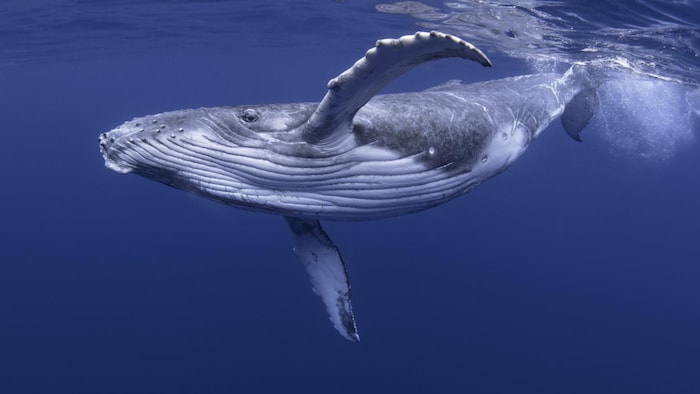Agence France-Presse Long threatened by commercial hunting, humpback whales once seemed to be doing better. But now it is the effects of climate change that could threaten their survival in the North Pacific, reveals a study published in the journal Royal Society Open Science (New window) (in English). Between 2012 and 2021, the number of humpback whales fell by 20% in this area, from 33,000 individuals to just over 26,600, according to the largest photo-identification dataset ever created for a large mammal marine studied by a team of 75 scientists. For a subset of whales that wintered in Hawaii, the drop was even 34%. Given other threats such as collisions with ships or noise pollution, the future of the species no longer seems as certain, warn scientists, who are calling for conservation efforts to take more into account climate change. According to the study's author, Ted Cheeseman, a whale biologist and doctoral student at the University Southern Cross in Australia, around 7,000 whales mostly died of starvation. Loading ELSELSE ON NEWS: The leader of the Republicans in the Senate, Mitch McConnell, will bow out in November While it is normal for a species' numbers to fluctuate, even in healthy populations, such a sudden decline for a long-lived species portends major disruption to the oceans. However, from 2014 to 2016, the strongest and longest marine heat wave on record ravaged the northeast Pacific, with temperature anomalies sometimes exceeding three to six degrees Celsius, altering the marine ecosystem and prey availability for large cetaceans. It's not just whale food that has declined, says Ted Cheeseman, noting a drop in populations of tufted puffins, sea lions and seals. A warmer ocean produces less food, in part due to the decline or migration of phytoplankton, the base of the entire ocean food chain. When I discovered this, I was speechless, he says. This is a much stronger signal than we expected. And all the more surprising since humpback whales, once threatened with extinction in the late 1960s due to commercial fishing, seemed to be recovering after the moratorium on whaling imposed in 1982 by the Whaling Commission international. In 2016, the United States removed the majority of pods of humpback whales from its endangered species list, following in the footsteps of the International Union for Conservation of Nature (IUCN) which, in 2008, upgraded them from vulnerable to Least Concern. But global warming seems to be changing the situation. In 2022, another study published in Frontiers in Marine Science showed that increasing ocean temperatures also had the effect of chasing humpback whales from their traditional breeding grounds.< /p> Ship strikes are also a deadly danger for Pacific whales.
Ship strikes are also a deadly danger for Pacific whales.The leader of the Republicans in the Senate, Mitch McConnell, will bow out in November
Marine heat waves, a new threat to humpback whales?

